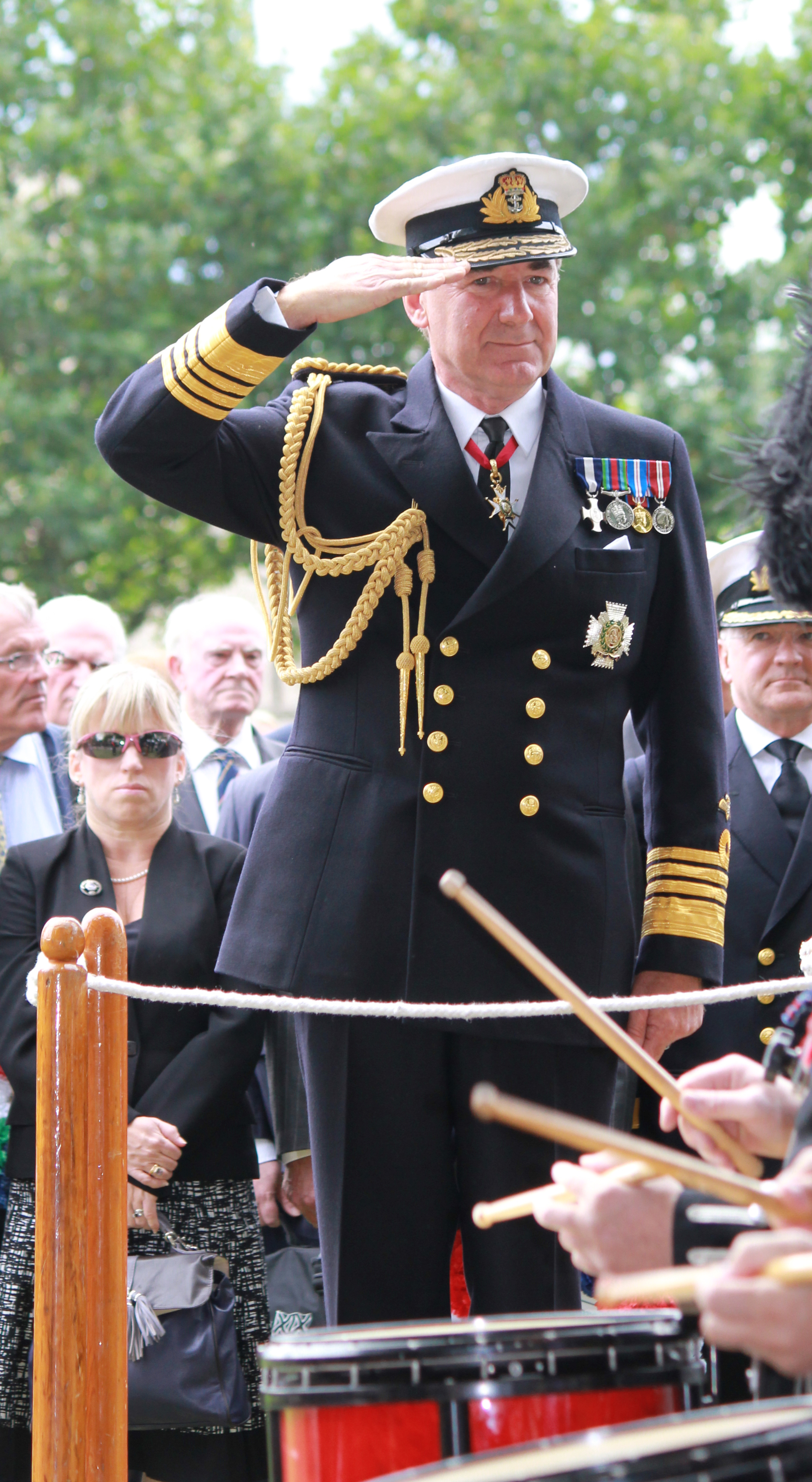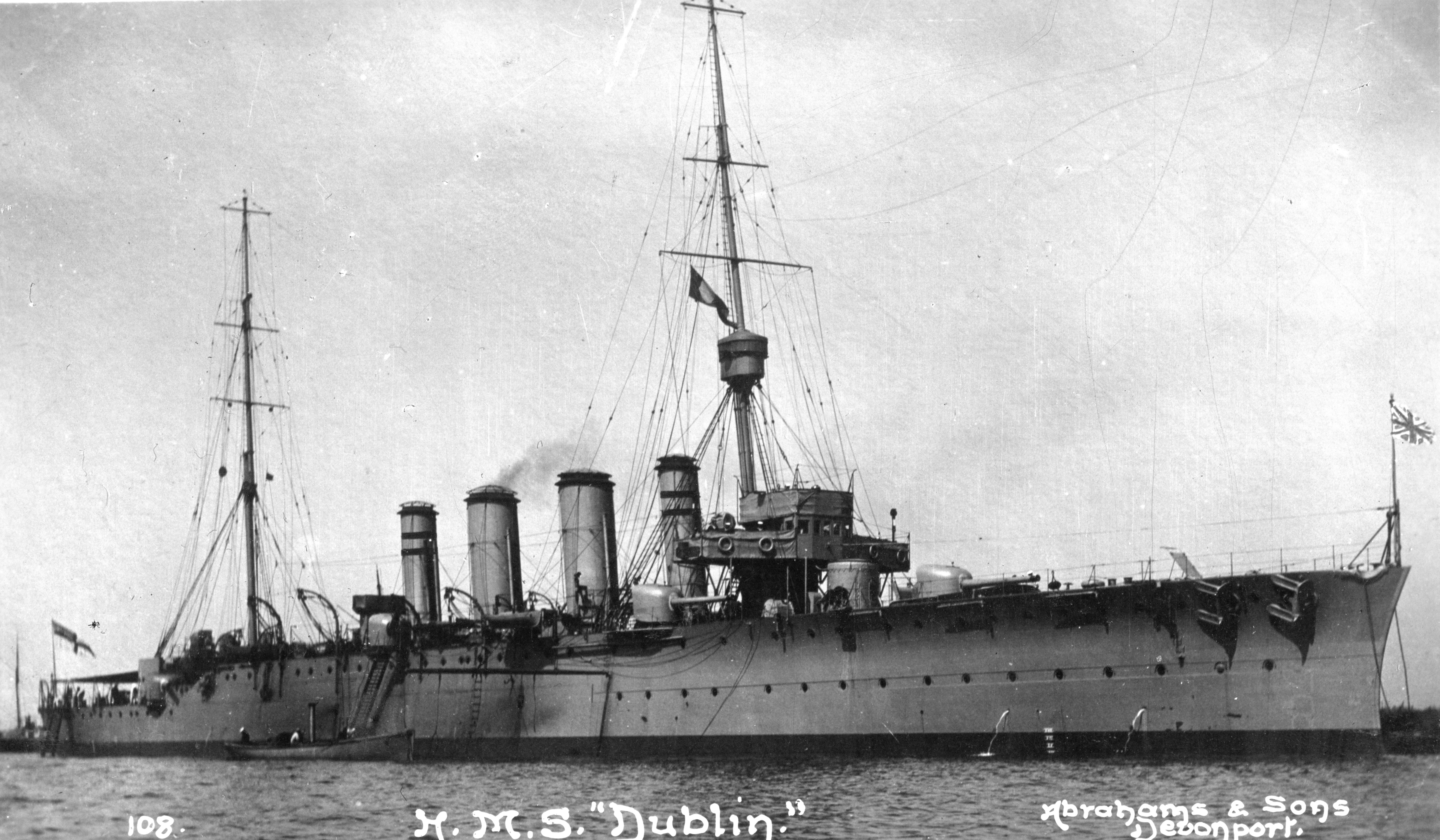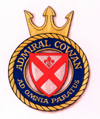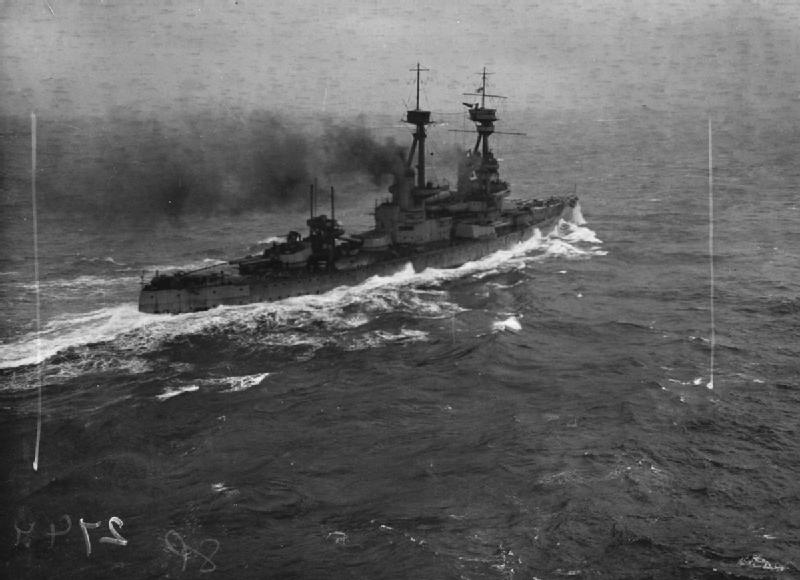|
First And Principal Naval Aide-de-Camp
Below is a list of First and Principal Naval Aides-de-Camp, an office established by William IV of the United Kingdom in 1830: First and Principal Naval Aides-de-Camp *1830-1846: Lord Amelius Beauclerk *1846-1866: Sir William Parker, Bt. *1866-1873: The Earl of Lauderdale *1873-1878: Sir James Hope *1878-1879: Hon. Sir Henry Keppel *1879-1886: Sir Astley Key *1886-1895: Sir Geoffrey Hornby *1895-1897: Sir Algernon Lyons *1897-1899: Sir Nowell Salmon *1899-1901: Sir Michael Culme-Seymour, Bt. *1901-1902: Sir James Erskine *1902-1903: Sir Edward Seymour *1903-1904: Sir Henry Stephenson *1904-1911: Sir John Fisher *1911-1913: Sir Lewis Beaumont *1913-1914: Sir Edmund Poë *1914-1917: Sir George Callaghan *1917-1919: Sir Henry Jackson *1919-1922: Sir Stanley Colville *1922-1924: Sir Charles Madden, Bt. *1924-1925: Sir Somerset Gough-Calthorpe *1925-1926: Sir Montague Browning *1926-1928: Sir Arthur Leveson *1928-1929: Sir Richard Phillimore *1929-1930: Sir W ... [...More Info...] [...Related Items...] OR: [Wikipedia] [Google] [Baidu] |
William IV Of The United Kingdom
William IV (William Henry; 21 August 1765 – 20 June 1837) was King of the United Kingdom of Great Britain and Ireland and King of Hanover from 26 June 1830 until his death in 1837. The third son of George III, William succeeded his elder brother George IV, becoming the last king and penultimate monarch of Britain's House of Hanover. William served in the Royal Navy in his youth, spending time in North America and the Caribbean, and was later nicknamed the "Sailor King". In 1789, he was created Duke of Clarence and St Andrews. In 1827, he was appointed Britain's first Lord High Admiral since 1709. As his two elder brothers died without leaving legitimate issue, he inherited the throne when he was 64 years old. His reign saw several reforms: the Poor Law was updated, child labour restricted, slavery abolished in nearly all of the British Empire, and the electoral system refashioned by the Reform Acts of 1832. Although William did not engage in politics as ... [...More Info...] [...Related Items...] OR: [Wikipedia] [Google] [Baidu] |
George Callaghan
Admiral of the Fleet Sir George Astley Callaghan (21 December 1852 – 23 November 1920) was an officer in the Royal Navy. During the Boxer Rebellion he served as commander of a naval brigade sent ashore to form an element of a larger expedition under Lieutenant-General Sir Alfred Gaselee: the expedition entered Peking and rescued the legations which had been held hostage there. He came to prominence again when, as Second-in-Command of the Mediterranean Fleet, he assisted with the provision of aid to survivors of the Messina earthquake, which had caused the loss of circa 123,000 lives. Callaghan became Commander-in-Chief of the Home Fleet in November 1911 and was advised in December 1913 that his tenure would be extended for another twelve months. With increasing international tension he started preparing his fleet for war. At the outbreak of the First World War in July 1914, Callaghan set sail in his flagship for his war station at Scapa Flow. There he met his successor-desi ... [...More Info...] [...Related Items...] OR: [Wikipedia] [Google] [Baidu] |
John Kelly (Royal Navy Officer)
Admiral of the Fleet Sir John Donald Kelly (13 July 1871 – 4 November 1936) was a Royal Navy officer. He served in the First World War as commanding officer of the cruiser HMS ''Dublin'' which came close to intercepting the German battlecruiser SMS ''Goeben''. After the War he took charge of a naval force dispatched to strengthen the Mediterranean Fleet during the Chanak Crisis. After serving as Fourth Sea Lord and then commander of the 1st Battle Squadron, Kelly, known for his skill in personnel matters, was asked to take command of the Atlantic Fleet in the aftermath of the Invergordon Mutiny. He rapidly restored discipline and issued a report which was quite critical of the Admiralty Board's handling of the pay cuts issue in the first place. He went on to be Commander-in-Chief, Portsmouth. Naval career Early career Born the second son of Lieutenant-Colonel Henry Holdworth Kelly of the Royal Marine Artillery and Elizabeth Kelly (née Collum), Kelly joined the training ... [...More Info...] [...Related Items...] OR: [Wikipedia] [Google] [Baidu] |
Sir Reginald Tyrwhitt, 1st Baronet
Admiral of the Fleet Sir Reginald Yorke Tyrwhitt, 1st Baronet, (; 10 May 1870 – 30 May 1951) was a Royal Navy officer. During the First World War he served as commander of the Harwich Force. He led a supporting naval force of 31 destroyers and two cruisers at the Battle of Heligoland Bight in August 1914, in which action the 1st Battlecruiser Squadron under Sir David Beatty sank three German cruisers and one German destroyer with minimal loss of allied warships. Tyrwhitt also led the British naval forces during the Cuxhaven Raid in December 1914, when British seaplanes destroyed German Zeppelin airships and at the Battle of Dogger Bank in January 1915, in which action Tyrwhitt again supported Beatty's powerful battlecruiser squadron. After the war, Tyrwhitt went on to be Senior Naval Officer, Gibraltar, commander of the 3rd Light Cruiser Squadron in the Mediterranean Fleet and then Commander-in-Chief, Coast of Scotland. He also served as Commander-in-Chief, China during a ... [...More Info...] [...Related Items...] OR: [Wikipedia] [Google] [Baidu] |
Hubert Brand
Admiral Sir Hubert George Brand, (20 May 1870 – 14 December 1955) was a senior Royal Navy officer who served as Second Sea Lord and Chief of Naval Personnel. Background Brand was the second son of Henry Brand, 2nd Viscount Hampden, Governor of New South Wales, and the grandson of Henry Brand, 1st Viscount Hampden, Speaker of the House of Commons. His mother was Susan Henrietta Cavendish, daughter of Lord George Cavendish. His three surviving brothers also gained distinction: Thomas Brand, 3rd Viscount Hampden, and the Honourable Roger Brand were both Brigadier-Generals in the Army while the Honourable Robert Brand was a businessman and civil servant who was raised to the peerage as Baron Brand in 1946. Naval career Brand joined the Royal Navy in 1883. Appointed acting Sub-Lieutenant on 14 September 1889, he was confirmed in this rank in June 1891, and promoted to Lieutenant on 30 June 1892. He was promoted to Commander on 1 September 1902, and appointed in command of the d ... [...More Info...] [...Related Items...] OR: [Wikipedia] [Google] [Baidu] |
Walter Cowan
Admiral Sir Walter Henry Cowan, 1st Baronet, (11 June 1871 – 14 February 1956), known as Tich Cowan, was a Royal Navy officer who saw service in both the First and Second World Wars; in the latter he was one of the oldest British servicemen on active duty. Early life Cowan was born in Crickhowell, in Brecknockshire, Wales, on 11 June 1871, the eldest son of Walter Frederick James Cowan, an officer in the Royal Welch Fusiliers. After his father's retirement from the British Army, the family settled in Alveston, Warwickshire, where his father became a justice of the peace. Cowan never went to school, but entered the Royal Navy in 1884 at the training ship, HMS ''Britannia'', a classmate to fellow future admiral David Beatty. Early service career In 1886, as midshipmen, Cowan and Beatty joined , flagship of the Mediterranean Fleet. Cowan saw service in Benin and Nigeria in 1887. He fell sick and was invalided home after less than a year, but later rejoined ''Alexandra'', ret ... [...More Info...] [...Related Items...] OR: [Wikipedia] [Google] [Baidu] |
Edwyn Alexander-Sinclair
Admiral Sir Edwyn Sinclair Alexander-Sinclair, (born Alexander; 12 December 1865 – 13 November 1945) was a Scottish Royal Navy officer, notable for firing the first shots of the Battle of Jutland, and for leading a squadron of light cruisers in the Baltic to support independence of Estonia and Latvia in 1918 to 1919. Early life and education Sinclair Alexander-Sinclair was born in Malta, the second son of Captain John Hobhouse Inglis Alexander of the Royal Navy, who served as '' aide-de-camp'' to Queen Victoria, and Isabella Barbara Hume, daughter of Thomas Cochrane Hume. He succeeded his elder brother in the Southbar property in 1892 and two years later adopted the additional name of Sinclair on succeeding to the estate of Freswick in Caithness. His paternal grandparents were Boyd Alexander, Lord of Southbar and Ballochmyle, and Sophia Elizabeth Hobhouse, daughter of Sir Benjamin Hobhouse, 1st Baronet and sister of John Hobhouse, 1st Baron Broughton. His father's el ... [...More Info...] [...Related Items...] OR: [Wikipedia] [Google] [Baidu] |
William Goodenough
Admiral Sir William Edmund Goodenough (2 June 1867 – 30 January 1945) was a senior Royal Navy officer of World War I. He was the son of James Graham Goodenough. Naval career Goodenough joined the Royal Navy in 1882. He was appointed Commander of the Royal Naval College, Dartmouth in 1905. He was given command of the cruiser HMS ''Cochrane'' in 1910 and of the battleship HMS ''Colossus'' in 1911. He served in World War I and commanded the 2nd Light Cruiser Squadron from 1913 to 1916, participating in the battles of Heligoland Bight in August 1914, Dogger Bank in January 1915, and Jutland in May to June 1916. In the King's Birthday Honours of 3 June 1916, Goodenough was appointed an Additional Member of the Third Class, or Companion, in the Military Division of the Most Honourable Order of the Bath (C.B.). He was promoted to the rank of Rear-Admiral on 10 June. After the War he became Superintendent at Chatham Dockyard and then, from 1920, Commander-in-Chief at the Af ... [...More Info...] [...Related Items...] OR: [Wikipedia] [Google] [Baidu] |
Richard Phillimore
Admiral Sir Richard Fortescue Phillimore, (23 December 1864 – 8 November 1940) was a Royal Navy officer who served as Commander-in-Chief, Plymouth from 1923 to 1926. Naval career Phillimore was born at Boconnoc in Cornwall on 23 December 1864, the son of Admiral Sir Augustus Phillimore, and educated at Westminster School. He joined the Royal Navy in 1878, was promoted to lieutenant on 20 August 1886, and to commander on 1 January 1899. He was posted to on 27 March 1900, and joined her in the China Station where she took part in the response to the Boxer Rebellion later in 1900. He was given command of in 1903 and then led the Naval Brigade Machine Guns in Somaliland the next year. He was then given command of in 1907, in 1909 and the battlecruiser in 1911. Phillimore served in the First World War, resuming command of HMS ''Inflexible'' in 1914, and then as Principal Beach Master for the landings at Cape Helles in the Dardanelles in April 1915. He went on to be liaison o ... [...More Info...] [...Related Items...] OR: [Wikipedia] [Google] [Baidu] |
Arthur Leveson
Admiral Sir Arthur Cavenagh Leveson GCB (27 January 1868 – 26 June 1929) was a senior officer in the Royal Navy. He was the Rear Admiral Commanding His Majesty's Australian Fleet from 9 January 1917 to 3 September 1918 and later Commander in Chief, China Station from 10 September 1922 to 22 April 1925.Dodd, Chapt. 8 (Part 2) Naval career Born on 27 January 1868 at Kensington, London, he attended a private school, and began his naval cadetship aboard the training ship HMS ''Britannia'' on 13 January 1881. He was rated midshipman on 15 January 1883 and sub-lieutenant on 17 January 1887 and promoted lieutenant on 27 July 1887. He was awarded the Beaufort Testimonial and Goodenough Medal in 1888 and qualified in gunnery in 1891. Serving as a Gunnery Lieutenant upon HMS ''Victoria'' in 1893, he survived the sinking of HMS ''Victoria'' on 22 June 1893 after she collided with HMS ''Camperdown'' near Tripoli, Lebanon during manoeuvres and quickly sank, taking 358 crew with her, inc ... [...More Info...] [...Related Items...] OR: [Wikipedia] [Google] [Baidu] |
Montague Browning
Admiral Sir Montague Edward Browning, (18 January 1863 – 4 November 1947) was a senior Royal Navy officer who served as Second Sea Lord and Chief of Naval Personnel. Military career Browning joined the Royal Navy in 1876. He served in the Anglo-Egyptian War and then became Secretary to the Parliamentary Committee on Water Tube Boilers in 1900. He was promoted to captain on 1 January 1902, and in June that year was appointed flag captain in command of the cruiser HMS ''Ariadne''. She was commissioned on 5 June 1902 as flagship of Vice-Admiral Sir Archibald Douglas, the new Commander-in-Chief of the North America and West Indies Station, where she arrived to take up the position on 15 July. Browning became Chief of Staff for the Channel Fleet in 1908 and Inspector of Target Practice in 1911. He served in the World War I as Commander of the 3rd Cruiser Squadron of the Grand Fleet and then, from 1916, as Commander-in-Chief North America and West Indies. He commanded 4th Bat ... [...More Info...] [...Related Items...] OR: [Wikipedia] [Google] [Baidu] |
Somerset Gough-Calthorpe
Admiral of the Fleet Sir Somerset Arthur Gough-Calthorpe (23 December 1865 – 27 July 1937), sometimes known as Sir Somerset Calthorpe, was a Royal Navy officer and a member of the Gough-Calthorpe family. After serving as a junior officer during the Fourth Anglo-Ashanti War, he became naval attaché observing the actions of the Imperial Russian Navy during the Russo-Japanese War and then went on to command an armoured cruiser and then a battleship during the early years of the 20th century. During the First World War Gough-Calthorpe initially served as commander of the 2nd Cruiser Squadron of the Grand Fleet, then became Second Sea Lord and after that became Admiral commanding the Coastguard and Reserves. In the closing years of the War he served as Commander-in-Chief of the Mediterranean Fleet, in which capacity he signed the Armistice of Mudros on behalf of all the Allies, by which the Ottoman Empire accepted defeat and ceased hostilities. The Occupation of Constantinople be ... [...More Info...] [...Related Items...] OR: [Wikipedia] [Google] [Baidu] |



.jpg)

